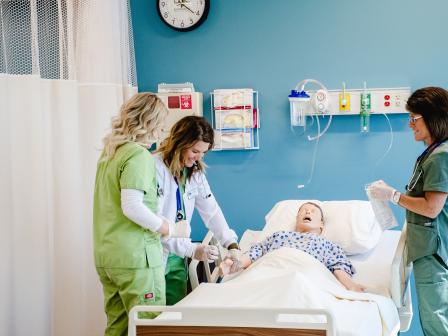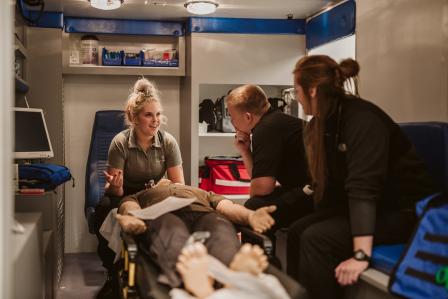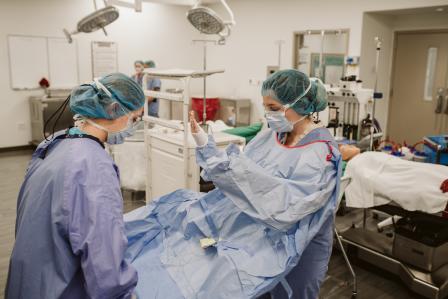
Specialized Health Sciences Equipment has Unanticipated Benefits for College
Several years ago, Bismarck State College (BSC) was at a crossroads with its health sciences programs. BSC offered Nursing, EMT/Paramedic, Medical Lab Technician and Certified Nursing Assistant (CNA) programs as well as the only Surgical Technology program in the state.
The challenge was their facility space. Healthcare-related classes were miles from campus, in a cramped downtown building. The lab didn’t have space for the specialized equipment and resources needed to prepare students for the rapidly-advancing field of health care.

In 2019, the college was ready to bring its health sciences programs under one roof, closer to campus. The BSC Foundation purchased a building, but they needed equipment. The U.S. Economic Development Administration awarded a $415,256 grant to the college to purchase medical training equipment and supplies for their health science programs.
The new equipment has allowed for the expansion of existing programs as well as the addition of a Diagnostic Medical Sonography program and gives students the opportunity to train on the same equipment they will use in the workforce.
“Training on the same equipment that students will use in the workforce is key in healthcare,” said Mari Volk, Dean of Current and Emerging Technologies said. “It’s especially important when associate degree and certificate programs get students into the workforce faster. Training on the right equipment gives students confidence in their skills and gives BSC the confidence that we are producing highly qualified, career-ready graduates for the industry.”
The new BSC Health Sciences building is set up as a state-of-the-art virtual hospital and has both the look and feel of a real hospital facility, complete with an ambulance bay, lab, surgical suites, and ultrasound technology. The equipment and setup give students training to prepare them for a career in healthcare.
“One of our Surg Tech students told me that being able to adjust the surgical lights in the classroom gave her so much more confidence when she was in the operating room with a world-renown neurosurgeon and had to adjust the lights,” Volk said. “Hospitals don’t usually hire new surgical techs for a neurosurgeon’s operating room, but he is now petitioning to get her on his team.”
The various health sciences programs at BSC work together to run full-scale simulations as training exercises for students. Seeing and experiencing all the roles working together gives students an added benefit that most don’t receive until they are out in the field.

“This building has afforded us the opportunity to build a healthcare workforce versus building individual healthcare workers,” Volk said.
Students and teachers aren’t the only ones who have benefitted from the new building and equipment. When the coronavirus pandemic started, BSC was able to use its Health Science building for COVID testing and vaccinations because it was set up as a real, functioning medical facility. The laboratory classroom had the appropriate desks and equipment including solid surface chairs and a steam sterilizer, which allowed the school to process 2,000 COVID tests in the first year of the pandemic.
It was an unanticipated benefit, but the college’s leaders credit the building and equipment for allowing them to keep the campus safe through the pandemic.
“It’s unreal to think about what it would have been like and the opportunities we could have missed had we not received this grant,” Volk said. “It’s not only changed how we educate our students, but also how we can protect our campus community.”
